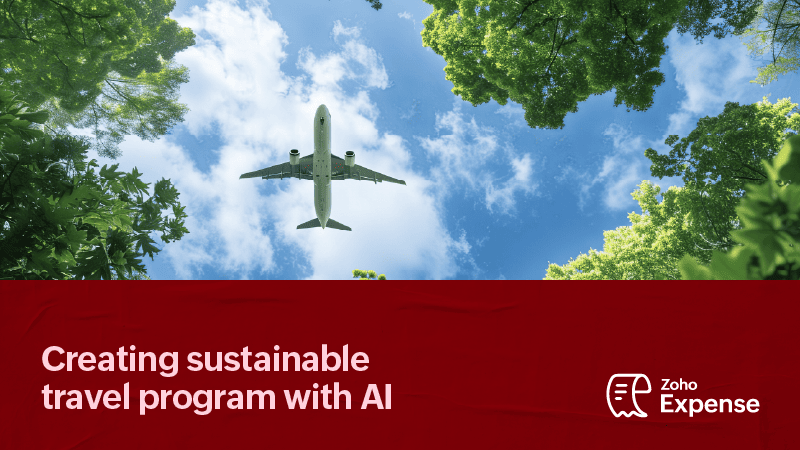- HOME
- Business travel
- How can AI help you create a sustainable travel program?
How can AI help you create a sustainable travel program?
Sustainability, which has been in the corner over the last decade, has now taken center stage. Even though countries in the European Union have enforced strict laws like CSRD, companies across the globe are vigorously looking into ways to control their Scope 3 emissions. ESG framework has also been playing a significant role in helping companies make sustainable business decisions. As per the GBTA and CWT report, there is going to be a steady increase in travel across the globe. Hence, it will be crucial for companies to build a sustainable travel program.
On the other hand, we see the rise of generative AI and how it can be used to improve business operations. According to a BCG study, 62% of companies see the potential of investing in AI. By leveraging data-driven AI models, companies can create a smarter and more sustainable travel program. BCG research also shows that AI has the potential to reduce global greenhouse emissions by 5% to 10% by 2030.
Creating a balance between cost-effectiveness and sustainable travel options is going to be essential for all businesses.

What is a sustainable travel program?
Sustainable travel programs refer to an initiative under the Global Sustainability Standards in Travel and Tourism (GSTC), taken up by organizations designed to reduce the environmental impact of Scope 3 emissions and work towards achieving net zero carbon emissions. It helps create awareness amongst travelers who might want to choose sustainable and eco-friendly travel options.
Along with predefined sustainable travel policies, creating a sustainable travel program with AI-powered systems can significantly benefit companies. Here, you'll find some of the ways AI can help in creating a sustainable travel program.
Data-driven decision-making
AI-powered systems can analyze travel patterns and bookings done previously in the organization and recommend sustainable travel options. For example, if you are a frequent traveler to New York, you can plan your stay so you can commute via public transportation rather than taking a taxi to save money and avoid fuel emissions. AI can also use previous data to predict whether the particular trips are necessary and reduce travel and promote remote meetings instead. Real-time carbon footprint tracking can help organizations plan their overall sustainability goals and further restrict employees from unnecessary travel.
Personalized travel options for frequent travelers
With the help of AI, companies can provide sustainable travel options to frequent flyers based on their travel preferences. For example: providing trains and buses over flights for shorter travel destinations.
Educating employees to opt for sustainable options
Apart from running regular awareness programs for employees, AI-powered systems can help by providing estimated CO2 emission data along with flight options and recommending the best travel options that emit less CO2.
Detailed reporting and analytics
With detailed analytics, companies can narrow down metrics like which department frequently travels to which place or the route most frequently taken and make travel decisions based on that. For example, if your company has frequent trips to London, you can have tickets booked with pre-negotiated rates with airlines and hotels for that particular calendar year.
Carbon off-setting and net zero emissions
AI-generated systems can automatically provide the total carbon emissions or estimated emissions for a year and help companies participate in other carbon-offsetting programs or drive new initiatives. Based on these reports, AI can also recommend other areas where they can improvise to offset their carbon emissions.
Conclusion
Both sustainability and AI are going to be two integral parts of companies' business strategies. AI is a powerful tool that can be utilized by organizations to optimize their costs and educate employees to adapt and encourage them to choose sustainable options for their business operations and travel. By using the power of AI, companies can move towards leveraging data models to build sustainable and cost-effective travel programs.
- Neil Varshiney
A focussed marketer and seasoned Fintech writer helping finance professionals and business owners to find and help them evaluate the right tech stack to run their operations effectively.